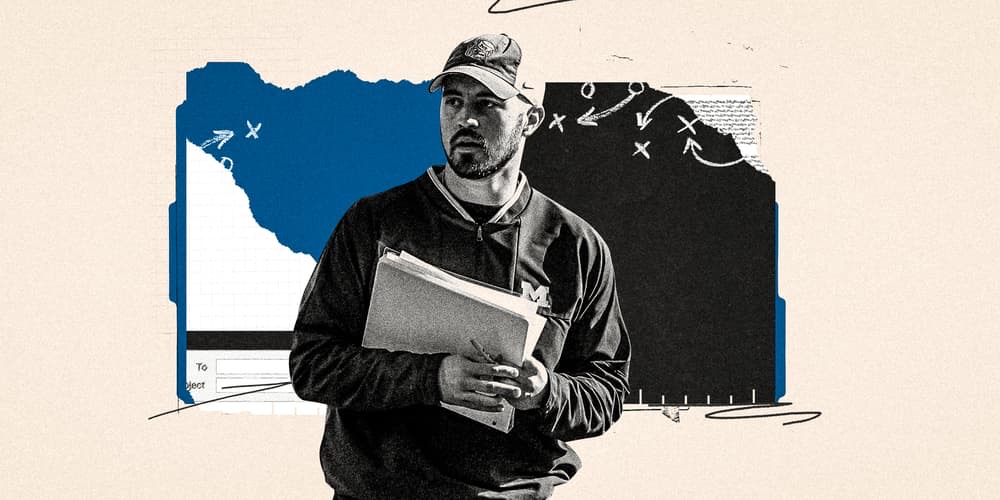In a shocking revelation that has sent ripples through the sports community, recently unearthed emails have exposed the canceled hiring of Connor Stalions, a former Michigan football staffer embroiled in a sign-stealing controversy. Stalions, who was on the Michigan Wolverines’ coaching staff, was accused of illegally acquiring and using opponents’ play-calling signals—a scandal that has cast a dark shadow over his career.
The emails, leaked from a prominent college football program, show that Stalions was on the verge of being hired for a significant role within their coaching staff. However, as the allegations of sign-stealing began to surface, the program abruptly pulled back from the hiring process, leaving Stalions in professional limbo. The decision, as the emails suggest, was less about the truth of the allegations and more about the fear of public backlash and the potential damage to the program’s reputation.
This controversy raises important questions about the ethics and pressures within college sports. The leaked communications reveal an uncomfortable truth: the world of college football is deeply influenced by public perception and media narratives. Instead of thoroughly investigating the veracity of the claims against Stalions, the hiring program chose to protect its image, effectively sentencing him to professional exile without due process.
Stalions’ alleged actions, if true, certainly warrant scrutiny. However, the swiftness with which his career prospects were extinguished highlights the precarious nature of careers in college sports. The emails indicate that even the mere whiff of scandal can be enough to end a coach’s career, regardless of whether they’ve had a fair chance to defend themselves.
The fallout from this decision goes beyond Stalions himself. It signals a broader trend in college sports where institutions are more concerned with appeasing the court of public opinion than ensuring justice and fairness within their ranks. The fact that these emails were leaked suggests there may be dissent within the program about how the situation was handled, possibly indicating that not everyone agreed with the decision to nix Stalions’ hiring.
Moreover, the timing of the leak raises suspicions. Could it be that someone within the organization wanted to expose the flawed decision-making process, or was it an attempt to sabotage another program by bringing this issue to light? The implications of these emails are vast, potentially impacting future hiring practices and the way controversies are managed in college sports.
Connor Stalions may have been caught up in a sign-stealing scandal, but the real story here might be the cutthroat nature of college football and the lengths to which programs will go to protect their brand. Whether Stalions is guilty or innocent of the accusations, the fact remains that he has been effectively blacklisted from the industry without a fair trial. This incident should serve as a wake-up call to the sports community: in the rush to protect reputations, we must not lose sight of fairness and due process.
The leaked emails have exposed more than just the cancellation of a hiring decision—they’ve shone a light on the darker, often unseen side of college sports, where careers can be destroyed by mere allegations and where the truth is often sacrificed on the altar of public opinion. As the controversy surrounding Connor Stalions continues to unfold, one thing is clear: the consequences of this scandal will be felt far beyond the football field.
